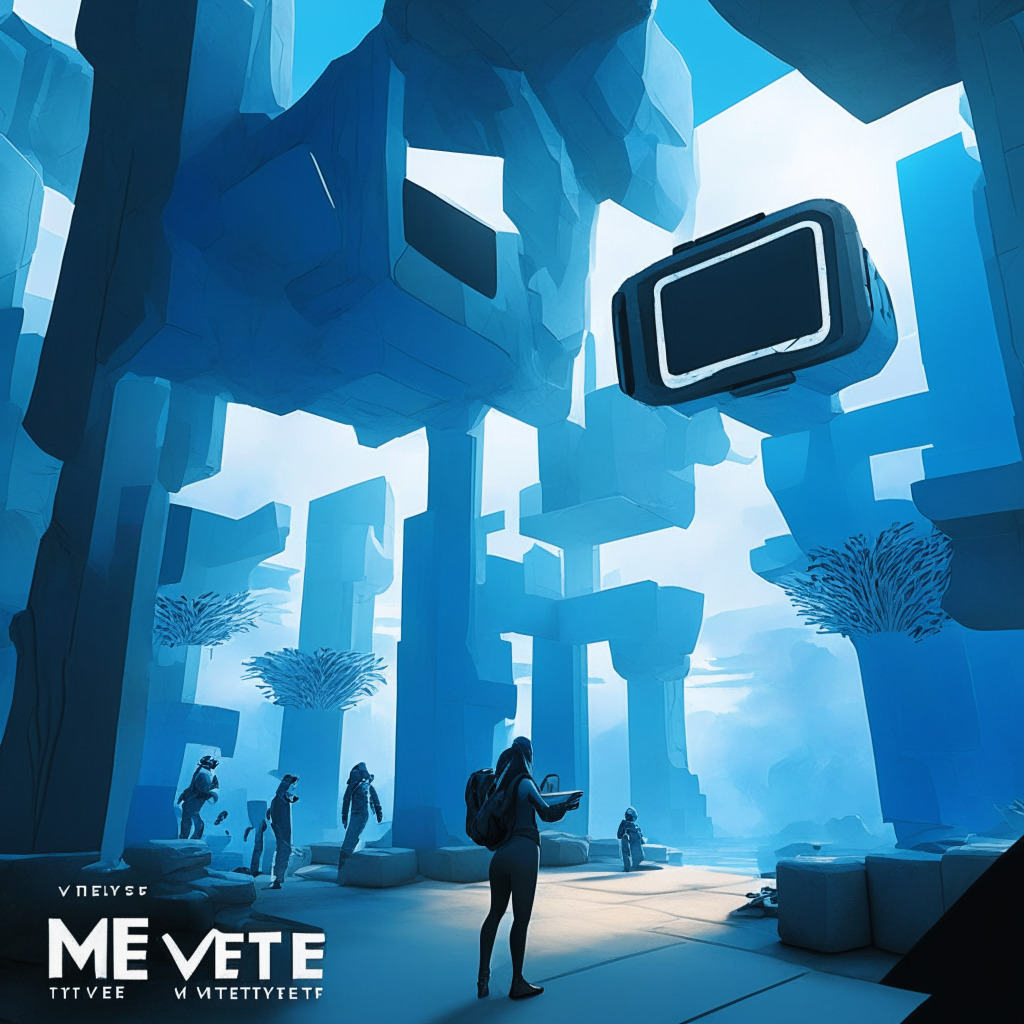Meta’s latest product, Horizon Worlds, aims to bring metaverses to mobile and web platforms. Amid limited accessibility and undisclosed user statistics, the promise of a democratized metaverse that caters to every individual remains uncertain. However, blockchain-based platforms like Decentraland and The Sandbox have chosen to start with PC and web-based experiences, offering a contrast to Meta’s approach.
Search Results for: Horizon Worlds
Understanding the Real Metaverse: Beyond Meta’s Bubble and Towards Community-Driven Platforms
“Yuga Labs’ CEO Daniel Alegre critiques Meta’s interpretation of the ‘metaverse,’ which he believes fell short of user expectations. He highlights platforms like World of Warcraft and Fortnite that successfully built engaging metaverses, compared to Meta’s unremarkable Horizon Worlds. Alegre explains the importance of user community input in shaping successful metaverse projects and the divergent, evolving roles of nonfungible tokens (NFTs).”
Zuckerberg’s Metaverse: An Undervalued Investment or an Overambitious Gamble?
Mark Zuckerberg’s metaverse initiative cost Facebook and Meta an estimated $21 billion, with tangible outcomes far less than invested. Despite only selling around 20 million units of the Quest VR headset and attracting a mere 200,000 users to Meta’s flagship VR experience, Horizon Worlds, Zuckerberg remains unfazed. Critics argue this detracts from their original advertising business while questioning the financial feasibility of the metaverse project.
Reinvigorating Meta’s Metaverse: A Strategy Swing Towards Mobile Gaming and AI Innovation
Meta’s new strategy for its Horizon Worlds platform involves nurturing an in-house VR game studio, Ouro Interactive, to create pioneering first-party titles. Aiming for broader appeal, Meta plans to introduce Horizon Worlds to mobile gamers globally, transforming the platform from VR-exclusive to VR-predominant. This move targets users without VR headsets and enables cross-platform play. Despite recent financial losses, the company remains optimistic about AI and metaverse as focal priorities.
Navigating the Murky Waters of Metaverse Regulation: UK’s Online Safety Bill & Beyond
The UK House of Lords deliberates if metaverse should be governed by online safety regulations established in the UK’s Online Safety Bill, emphasizing the potential vulnerability of children and adults in these digital spaces. Variations exist in international regulations, raising standardization concerns and questioning the adequacy of traditional legal systems to address rapidly evolving digital spaces.
Metaverse Debate: Tech World Divided Between Potential and Abandonment
This article debates the metaverse’s future, as some claim it has run its course and been abandoned by businesses, while others like Tim Sweeney argue that there are still 600 million monthly active users across platforms, and tech giants continue investing in its potential.
Metaverse: A Fading Fad or Unstoppable Future? Debating Views of Industry Leaders
Epic Games CEO Tim Sweeney humorously defended the Metaverse’s future, countering an article claiming its decline. Noting the vast active user base across platforms and major corporations’ development and investment within the Metaverse, Sweeney’s optimism stands firm.
Bitcoin’s Rollercoaster Ride: MicroStrategy’s Unrealized Losses Vs. Predicted Future Gains
“Despite Bitcoin’s recent bearish trend causing MicroStrategy to face substantial unrealized losses, the business intelligence firm remains staunch in their Bitcoin advocacy, attributing the losses to temporary market fluctuations. However, this scenario could potentially affect Bitcoin’s future market volatility and valuation parameters.”
Exploring the World of VTubers: The Future of Content Creation or a Passing Fad?
VTubers use motion capture technology to create personalized virtual avatars, allowing them to interact with their audience in real-time while maintaining anonymity. The growing popularity of VTubers signifies an evolving landscape in online content creation, highlighting the importance of digital interactions and online personalities in an increasingly connected world.
Mandela Comics Gaming Adaptation: Exploring Opportunities and Challenges with NFT Integration
Blair Witch Project Executive Producer, Kevin Foxe, commits to developing a video game adaptation of Mandela comics featuring NFTs across multiple blockchains, ushering in opportunities and engagement for gaming enthusiasts. However, potential challenges include high transaction fees, environmental impact, and market saturation.









